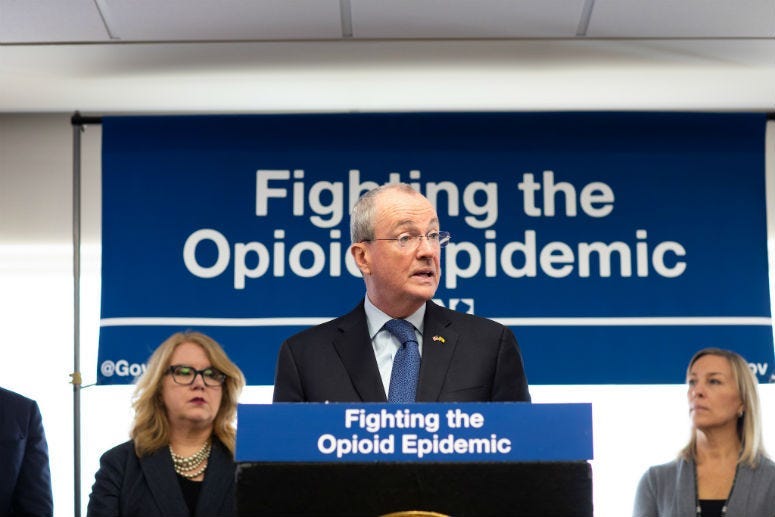
With more than 3,000 overdose deaths in the state last year, the governor is removing administrative barriers that make it difficult for those getting government health care to be treated for opioid addiction.
“Medicaid recipients are disproportionately impacted by this epidemic. Yet they were excluded from access to MAT (Medication Assisted Treatment),” Murphy said. “The last administration did open that up but it was for non-Medicaid covered individuals.”
READ: Camden County to mirror one town’s effort to battle opioid addiction through help in court
Cooper’s Medical School partnership with Rowan University will also serve as one of two “Centers of Excellence” in opioid treatment, along with the Rutgers Medical School in Newark with some $4 million in state money.
Changes are also coming in New Jersey’s Medical Marijuana Program, as opioid addiction will be added to the list of eligible conditions under which physicians can write a prescription.
“I think that’s a big deal both as an alternative to opioids on a going in condition but also as a weapon on folks that are trying to struggle their way out of an addiction,” the governor added.
Murphy was joined at the announcement by several members of his administration, from the attorney general to commissioners in the health, labor, human services, corrections and children and families departments. It was meant to demonstrate an approach by the administration as a whole to address the problem in a number of ways.
